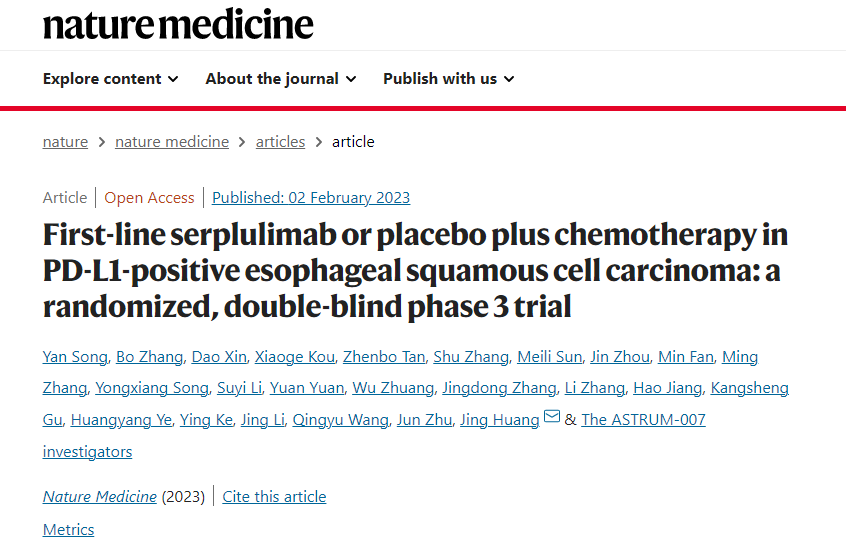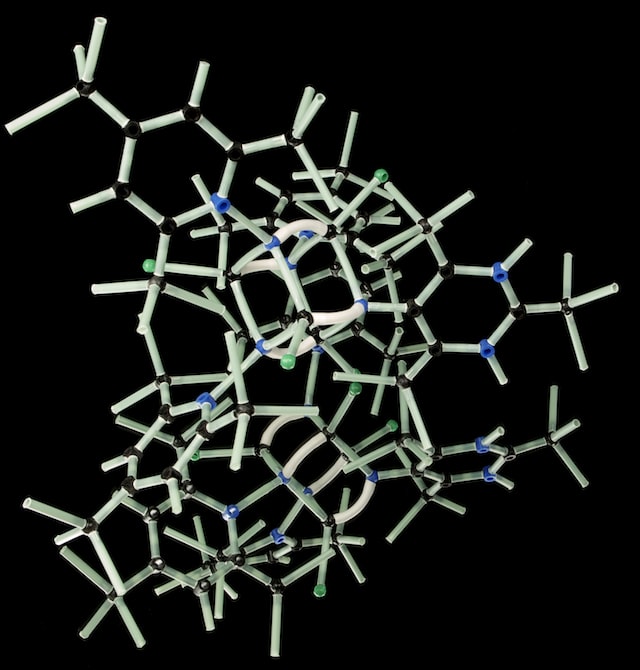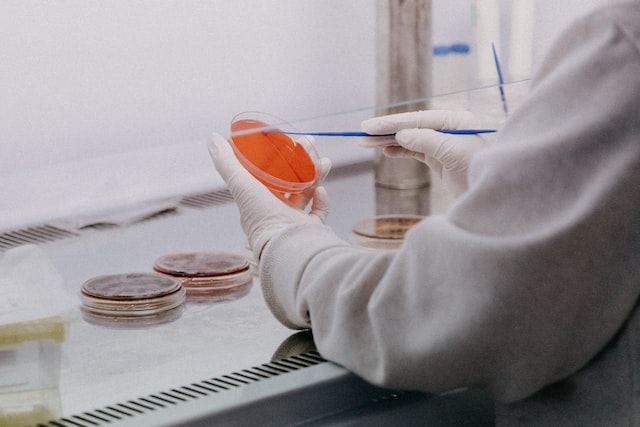On February 3, 2023, Beijing time, Fohong Hanlin announced that the results of the Phase III clinical study (ASTRUM-007) of its self-developed anti-PD-1 monoclonal H-drug Hansiform® (srulizumab) in combination with chemotherapy for the first-line treatment of esophageal squamous cell carcinoma (ESCC) were officially published in the international authoritative journal Nature Medicine (Impact Factor: 87.241). The study was led by Professor Huang Jing of the National Cancer Center/National Center for Clinical Medical Research in Oncology/ Cancer Hospital of Peking Union Medical College, Chinese Academy of Medical Sciences.

Image credit: Nature Medicine
The results of the ASTRUM-007 study were presented as an oral presentation at the annual meeting of the Chinese Society of Clinical Oncology (CSCO) in November 2022 and at the annual meeting of the European Society of Medical Oncology in Asia (ESMO Asia) in December of the same year. This formal publication in Nature Medicine once again demonstrates the innovative level and R&D strength of Chinese pharmaceutical companies in developing their own PD-1 monoclonal antibodies in the international academic arena. Based on the results of this study, the marketing registration application for the relevant indication of H-drug has been accepted by the State Drug Administration (NMPA), and has recently been recommended by the Chinese Guideline for the Radiotherapy of Esophageal Cancer (2022 Edition) for the first-line treatment of advanced esophageal squamous cancer with PD-L1 CPS≥1 in combination with chemotherapy.
Professor Huang Jing, corresponding author of the paper and lead investigator of the ASTRUM-007 project, said: "The ASTRUM-007 study explored the efficacy of H-drug combination chemotherapy in previously untreated PD-L1-positive oesophageal cancer patients, and the H-drug combination chemotherapy group significantly improved patients' PFS and OS compared to the chemotherapy group, with a good safety profile. We thank all the patients, families and investigators who contributed to this study for their hard work and look forward to the early approval of the H drug for the indication of esophageal squamous cancer, bringing a new option for immunotherapy in esophageal squamous cancer."
Mr. Zhu Jun, President of Fohong Hanlin, said, "The publication of H in the prestigious international journal Nature Medicine, following the publication in JAMA, is not only a full recognition of the quality of H, but also a demonstration of the company's international clinical trial capabilities and innovative strength. We have an extensive presence in lung cancer and gastrointestinal tract oncology and are accelerating the launch of H in more indications. We look forward to H-drug as a representative of China's innovative drugs, benefiting more patients worldwide with high-quality domestic biologics."
H-drug offers new option for first-line ESCC immunotherapy
Esophageal cancer is a very common malignancy worldwide, with the main subtypes being squamous cell carcinoma and adenocarcinoma, with more than 84% belonging to esophageal squamous cell carcinoma [1]. China is a region with a high incidence of esophageal cancer, and according to the estimated incidence and mortality rates of malignant tumours in China in 2016, there were 253,000 new cases and 194,000 deaths of esophageal cancer in China, ranking 6th and 5th in incidence and mortality rates of malignant tumours respectively [2]. As the symptoms of early stage esophageal cancer are often not obvious, most patients are already in the middle to late clinical stage when diagnosed, losing the opportunity of surgical treatment. At present, systemic treatment (chemotherapy or targeted therapy) is mainly used for advanced patients, but the therapeutic effect is limited and the recurrence and metastasis rates are high. In recent years, tumour immunotherapy has become one of the research hotspots at home and abroad, and several studies have shown that anti-PD-1 monoclonal antibodies combined with chemotherapy can bring survival benefits to patients with oesophageal cancer, and immune checkpoint inhibitors combined with chemotherapy have become the first-line treatment standard for oesophageal cancer in China[3].
ASTRUM-007 (NCT03958890) is a randomised, double-blind, multicentre phase III clinical trial designed to investigate the efficacy and safety of srulizumab compared to placebo in combination with chemotherapy separately in previously untreated, PD-L1 positive (composite positive score ≥1) patients with advanced ESCC. 551 patients were randomised in a 2:1 ratio, and patients in both groups were treated with srulizumab or placebo combined with 5-fluorouracil and cisplatin respectively (once every 2 weeks). Median progression-free survival (PFS) was significantly longer in the solutumab-combined chemotherapy group than in the placebo-combined chemotherapy group (5.8 vs. 5.3 months; hazard ratio [HR] 0.60, 95% CI 0.48-0.75; p<0.0001). Significant improvements in median overall survival (OS) were also achieved in the solutumab-combined chemotherapy group versus the placebo-combined chemotherapy group (15.3 vs. 11.8 months; HR 0.68, 95% CI 0.53-0.87; p=0.0020). Safety-wise, the safety profile of sulforhizumab in combination with chemotherapy was good. Compared to chemotherapy alone, solutumab in combination with chemotherapy (every 2 weeks) significantly improved PFS and OS in PD-L1 positive advanced ESCC patients as a first-line treatment regimen, and this regimen provides a new treatment option for this patient group.
H-Drug focuses on large cancer types, deepening its focus on lung cancer and gastrointestinal tract tumours

H-Drug Hansalem® (srulizumab) is the first innovative monoclonal antibody developed in-house by Fulbright. Since its approval in March 2022, H has been approved in China for the treatment of microsatellite instability-high (MSI-H) solid tumors, squamous non-small cell lung cancer and extensive-stage small cell lung cancer (ES-SCLC), benefiting more than 10,000 Chinese patients. Based on the H drug, the Company has developed a diversified range of tumour immunotherapy combination therapies globally and fully utilised its own pipeline covering tumour-specific targets, anti-angiogenic targets and tumour immune targets to facilitate the combination of H drugs with monoclonal antibodies, chemotherapy and other therapies. With clinical needs in mind, the Company has developed a differentiated and multi-dimensional portfolio of H-drugs in the field of digestive tract cancer and lung cancer, covering a wide range of indications for lung cancer, hepatocellular carcinoma, esophageal squamous carcinoma, head and neck squamous carcinoma and gastric cancer, and has enrolled over 3,100 subjects worldwide.

In the gastrointestinal tract, H has been approved for MSI-H solid tumour indications to benefit patients with MSI-H-prone colorectal and gastric cancers. In addition, H has also reached Phase III in neoadjuvant/adjuvant gastric cancer, a niche in which there are currently few studies and in which the Company is an international leader, and which is expected to enable gastric cancer patients to benefit from tumour immunotherapy at the front line. In the field of lung cancer, H-Drug's ASTRUM-005 study for ES-SCLC indication was published online in the Journal of the American Medical Association (JAMA, impact factor 157.3), one of the world's top four medical journals, making it the world's first immunotherapy clinical study for small cell lung cancer to be published in the main issue of JAMA. In addition, H has been granted orphan drug status by the US Food and Drug Administration (FDA) and the European Commission (EC) respectively, and has been included in the 2022 CSCO Small Cell Lung Cancer Guidelines as a recommendation for the treatment of ES-SCLC.
